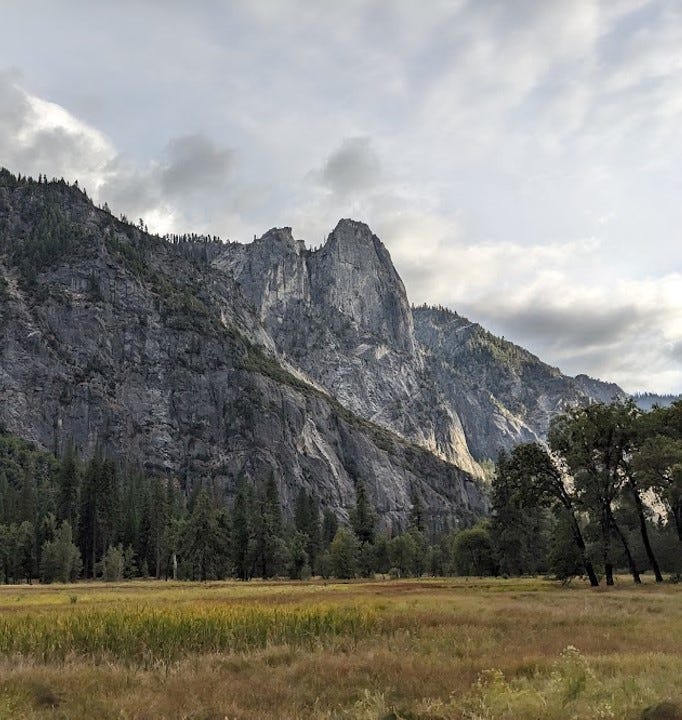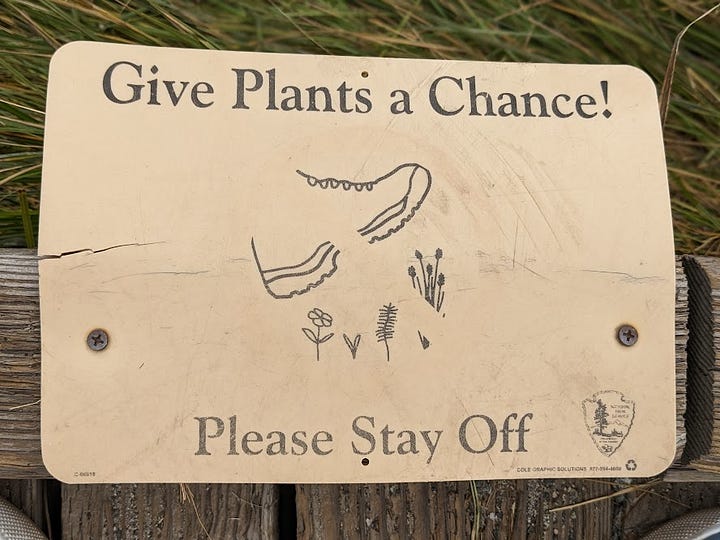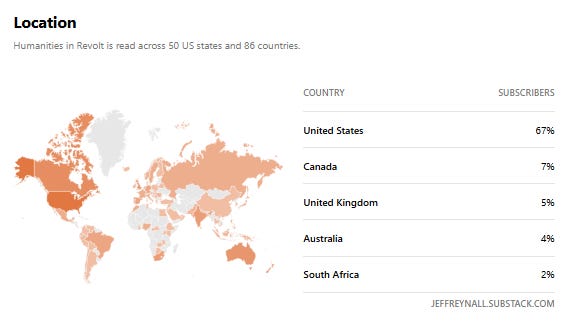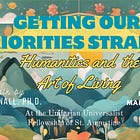2024: A Year of Heartache and Love-laden Revolt
Humanities in Revolt Surpasses 3,000 Subscribers. See the Top 12 Articles of the Year
What’s in Store:
A Successful Year of Humanistic Revolt
Longtime readers know that I began Humanities in Revolt to bring some of the humanities’ insights out of the ivory tower and into the spaces of ordinary living—into our homes, workplaces, and the public square. The college classroom remains one of the most important and fruitful spaces to facilitate genuine democratic discourse and free inquiry. As a college educator, I get to create environments in which people speak freely, interrogate assumptions, and explore new ideas. Though this experience was and continues to be fulfilling, I wanted to reach beyond the classroom to connect with people in different geographical and existential positions.
Not everyone ends up in college. And even if they do, most people have limited encounters with the humanities. I began Humanities in Revolt to share some of what led me as a high school dropout turned professor to radically reappraise not only education but also my sense of self. I wanted to share some of what led me to appreciate and embrace the humanities as a vital resource in our efforts to live lives of integrity, compassion, excellence, and joy.




The humanities were never meant to be cloistered away from the wider public. They are meant for all of us and are as relevant to small, gnawing problems of being human as they are to global issues of justice. The humanities, at their best, enable us to understand or at least grapple with the inevitable hardships of the human condition, from experiencing or combating injustice to coping with the inevitable challenges of aging and change, more generally. They also guide us in more fully savoring the intrinsic joys of being a thinking, feeling, and caring being.
So it is against the backdrop of this aim of bringing the humanities out into wider public discourse that we celebrate our publication’s successes for the year. In 2024, Humanities in Revolt was visited more than 139,000 times by over 85,000 users. That’s compared to about 16,000 visits in 2022 and 50,000 in 2023. More than twice as many people explored our work (see a sampling of that work below) this year compared to fewer than 40,000 users in 2023.
Most of our 85,000 visitors are from the U.S. where we are read in all 50 states. But Humanities in Revolt is also read by subscribers in 85 countries outside of the United States. We continue to grow our humanistic readership in countries from South Africa, Nigeria, and Italy to Brazil, Germany, India, and Australia.
On December 31, 2023, Humanities in Revolt was graced with a total of 925 subscribers. This was triple the subscribers from the prior year. In 2024, more than 2,400 new readers joined us. We share these numbers because you are a significant reason for our success. Without your readership, likes, shares, comments, feedback, and support, we simply would not be ending the year with a readership of over 3,300 biophiliacs (lovers of life).
Humanities in Revolt takes as its starting point the ethical primacy of humanity and the living—the ends of life—over mechanisms and objects—the means of life. Put differently, Humanities in Revolt treats being—creative, spontaneous, organic, active, independent thought and experience—as the supreme value over having—passive, routinized, mechanized, conformist, appearance-driven thought and experience. Such a principle is as old as the humanities and yet remains as boldly defiant of dominant societal practices as ever.
From the start, Humanities in Revolt has made it clear that payment will never be a barrier to our core content. As a person who has relied upon government assistance in both childhood and adulthood, I understand economic hardship and the indignities that accompany it. Though most, today, freely admit the wrong of excluding people from meaningful social experiences on the basis of ethnicity or sex, the exclusion of people based on financial lack remains not only tolerated but largely obscured as a matter worthy of examination at all. This too is a matter of particular importance to the humanities and cultural inquiry. What parts of our human-made world are treated as God-given or facts of nature and which are treated as the result of human agency and thus within the domain of social alteration? To put it differently, the humanities invites us to critically examine the common sense beliefs that govern our very notion of what is possible and what isn’t.
Returning to the point, Humanities in Revolt will continue to ensure all have access to our most important pieces. And it’s because of this refusal to put our primary work behind a paywall that makes us so grateful for each person who chooses to contribute or become a paid subscriber. To-date, every dime received from paid subscriptions and Ko-fi tips has been used to overcome the algorithmic barriers preventing our work from reaching readers with an appetite for humanistic inquiry.
Top 12 Articles of 2024
Below is a list of the most visited pieces in order of popularity. Our aim is to publish works that are timely but not limited to relevance determined by 24-hour news lifecycles. If successful, the pieces below will remain relevant in 2024 and beyond.
A perusal of the top articles reveals a clear emphasis on the ongoing devastation in Palestine. The incalculable destruction and horrors enacted upon the Palestinian people boggles the mind and confounds the heart. Multiple articles planned for 2024 were sidelined to address some timely aspect of what Amnesty International and other human rights organizations describe as a “genocide” in Gaza. The resulting pieces, however feebly, attempt to honor the principles at the foundation of this project: the affirmation of universal human dignity, the love of life, and objection to systems of dehumanization and oppression.
We would fail not only the Palestinian people but also ourselves and the best of our human family—our spiritual leaders, change agents, literary luminaries, and so many others who have given us the humanities—by failing to bring the full weight of the humanities to bear upon the commission of a vivid and real-time genocide, one that has killed so many journalists, authors, healthcare workers and children.1
We invite you to read those articles you may have missed and share your favorites with others. And please let us know which of our 2024 pieces you found most important or thought provoking and why.
“Aaron Bushnell and the Madness of Being Human in a Sick Society”
“The Ancient Fable Hidden in Twenty One Pilots' 'Blurryface’”
"Let it be a Tale: Daring to Dream in the Face of Fatalism and Futility”
“Self-Sacrifice is Not Suicide: Understanding Aaron Bushnell's Self-Immolation with Help from the Humanities”
“From the Eye of the Storm to the Crosshairs of War: Hurricane Milton and the Siege of Gaza”
“A Bound Prisoner's Unbowed Humanity”
“The Self-immolation of Matt Nelson”
“Refusing to Submit: Faithfully Revolting Against Fatalism”
“Resurrecting ‘Hind's Hall’”
“Taking Games Seriously: Pankration, the Olympics, and Our Sports Imagination”
“What about Mamma's Labor”
“What's Martin Luther King, Jr. Got to do with Gaza?”
Paid Subscriptions
Paid subscribers receive premium bonus content including video lectures like those below. Primarily, they help Humanities in Revolt expand its reach and grow its readership.
Thanking Our Substack Community
Humanities in Revolt’s growth in 2024 has also been made possible through the support of fellow Substack writers, particularly those so generously recommending Humanities in Revolt to their readers. A perusal of the various publications recommending showcases a variety of aims and points of view reflective of our publication’s commitment to embracing open and spirited critical dialogue.
If you enjoyed this post please share it with others and like it by clicking the heart icon. Be sure to subscribe if you haven’t already.
For more information read, Doctors without Borders December 2024 report, "Gaza: Life in a Death Trap." Also see Human Rights Watch’s December 2024 report, “Israel’s Crime of Extermination, Acts of Genocide in Gaza.” The HRW report reads, “Israeli authorities’ and forces’ actions to deprive the population of Gaza of access to water amount to acts of genocide under the Genocide Convention and the Rome Statute of the International Criminal Court…. The conditions that Israeli authorities have created in Gaza since October 2023—that of long-term and severe water deprivation—are such that they are leading to the slow deaths of Palestinians there, including newborn babies whose mothers cannot feed them due to being malnourished and dehydrated, and who are drinking formula mixed with dirty water due to the lack of access to clean water in Gaza; people with disabilities, who often have increased needs for clean water and additional challenges in accessing it; and people who simply have contracted water-borne illnesses but did not have adequate access to nutrition, clean water, and medical care because of Israeli government actions.”

























Excellent Jeffrey; your humanistic voice is an important one, a moral one. It is good that you have extended your lessons and lectures on the humanities outside the classroom to include a wider audience. I am heartened that your readership is increasing.
In this case, the more the better. While I have read widely, it is the humanities that have shaped my moral thinking, both inside and outside the classroom. If I may recommend a writer to make known to a wider audience, it would be Primo Levi. His Periodical Table is a mini masterpiece.
I'm not showing up as a subscriber though my bank statement shows my monthly payments. I've enjoyed your thoughts and values for awhile now and want to support your work. Keep our minds open and working, Mr.Nall.